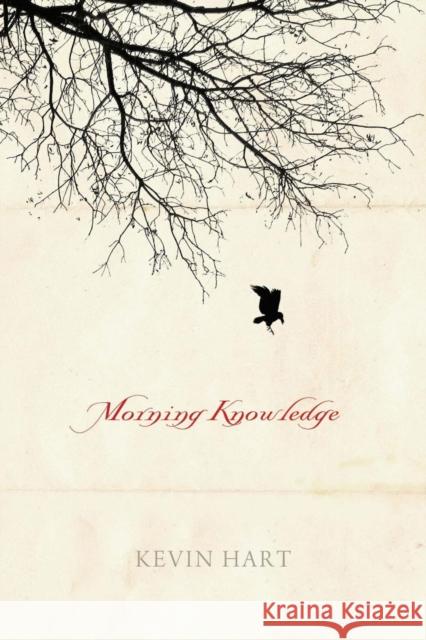Morning Knowledge » książka
Morning Knowledge
ISBN-13: 9780268030933 / Angielski / Miękka / 2011 / 102 str.
Morning Knowledge
ISBN-13: 9780268030933 / Angielski / Miękka / 2011 / 102 str.
(netto: 64,86 VAT: 5%)
Najniższa cena z 30 dni: 67,47
ok. 22 dni roboczych.
Darmowa dostawa!
Kevin Hart is not only one of Australia's most important poets but a major figure in world poetry. He is a visionary writer who has taken his bearings as much from English Romanticism and European Modernism as from the Bible, Plato, and Meister Eckhart.
In "Morning Knowledge," Hart grieves the passing of his father, while continuing his unique interlacing of the spiritual and the sensuous. These poems are dual in nature and inspiration, embracing the pain and passion of humanity at the same time as they evoke theimmanence of God in the world. A book of elegies and love poems, prayers and lullabies, a book in which poems sing about a museum ofshadows and about rats and afternoons, all wrapped in quatrains, "Morning Knowledge" is a major book by a poet readwidely.
"The most outstanding Australian poet of his generation. . . . One of the major living poets in the English language. . . . Kevin Hart is an erudite poet, but converts his learning into passion. He is a visionary of desire and its limits." --Harold Bloom, Yale University
"This latest volume--in what must now be called the" oeuvre" of Kevin Hart--features a characteristically spare and yet richly evocative voice that reaches out to us and touches that place of silence within where poetry begins and often, in the hands of a master, ends. As in Thoreau's inflection of the phrase, 'morning knowledge' can entail mourning, but there is equally a celebration of life here that affirms the place of poetry in our world and the place of Kevin Hart in the world of poetry." --Paul Kane, Vassar College
"These poems, with a verbal music that is wonderfully sensuous, even entrancing, and a meaning that so purposefully evades the grasping mind it stimulates, are Kevin Hart's best so far. They reveal a poet deeply in tune with the mystical light and shadow playing over everyday experiences and leaving something of the same 'morning knowledge' that never quite faded for Wordsworth or Thoreau." --Geoffrey Hartman, Yale University"











